Pew Forum
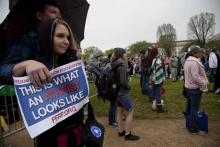
As the 2016 election approaches, atheist, humanist, and other freethinking activists are encouraged. They say their longtime goal of creating a cohesive and formidable secular voting bloc from the diverse and scattered category of the nonreligious has taken new life from the study — and could carry them far if they use the data wisely.
“It is going to translate into a lot of political clout and social acceptance if we manage this correctly,” said David Silverman, president of American Atheists.
The Pew Forum on Religion and Public Life put out numbers this week about religious voters in the 2012 elections. Here's a snippit:
"In his re-election victory, Democrat Barack Obama narrowly defeated Republican Mitt Romney in the national popular vote (50% to 48%)1. Obama’s margin of victory was much smaller than in 2008 when he defeated John McCain by a 53% to 46% margin, and he lost ground among white evangelical Protestants and white Catholics. But the basic religious contours of the 2012 electorate resemble recent elections – traditionally Republican groups such as white evangelicals and weekly churchgoers strongly backed Romney, while traditionally Democratic groups such as black Protestants, Hispanic Catholics, Jews and the religiously unaffiliated backed Obama by large margins."
Read more here.
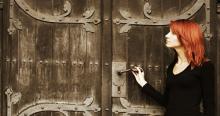
OK, church folks. Fasten your seat belts. But don’t hunker down.
There’s a new study out this week that shows that one-in-five Americans has no religious affiliation. Not Baptist, not Catholic, not Lutheran, not Jewish, not Muslim.
For those of us in the world of organized religion, this just adds more data to a trend we have seen accelerating over the last decade.
In 2007, about 15 percent of the adult population in the U.S. described itself as unaffiliated with any religion. In a comparable survey done this summer and released on Tuesday by the Pew Research Center’s Forum on Religion and Public Life, the number hit 20 percent. And if you just focus on those under 30, the religiously unaffiliated constitute one third of that group.
Among those of us who are professional religious types, this is the kind of data that can prompt a lot of gloomy introspection about relevance and a lot of finger pointing at those who are not interested in the same kinds of religious expression that we are.
Let me suggest there’s a less gloomy and less judgmental way to think about this data.
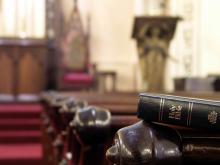
One-in-five adults in the United States — and a third of adults under 30 — say they have no religious affiliation. The numbers are out in a new report called “’Nones’ on the Rise,” put out by the Pew Forum on Religion and Public Life. That 20 percent of the population is up from 15 percent just five years ago.
But while our church membership rolls may be shrinking, “unaffiliated doesn’t necessarily mean wholly secular,” said senior researcher Cary Funk at the Religion Newswriters Association Conference in Bethesda, Md., on Saturday.
In fact, two-thirds of the 46 million Americans self-identifying as having no religion also say they believe in God. And 21 percent of them say they pray every day. A large portion of this group — 37 percent — say they consider themselves “spiritual but not religious.”
The increase in disaffiliation goes hand-in-hand with an overall lack of trust in American institutions across the board, from the government to the news media, and now, to our houses of worship.
The “nones” overwhelmingly say religious institutions are too concerned with money and power, and 67 percent say they both focus too much on rules and are too involved in politics.
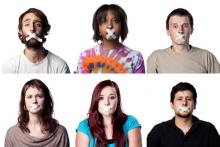
Young millennials — age 18 to 25 — are more comfortable with an evangelical than Mormon (or atheist or Muslim) president. This, according to part two of the Millennial Values Survey put out by the Public Religion Research Institute and Georgetown University’s Berkley Center.
Nearly six in 10 of those surveyed say they would be comfortable with an evangelical Christian serving as president, while 44 percent would be comfortable with a Mormon.
The numbers line up with those supporting President Barack Obama over Gov. Mitt Romeny at 55 percent to 39 percent — a spread that has actually increased 16 points since March.
But that won’t necessarily convert into votes. Nearly two-thirds of those surveyed are registered to vote, but only half report they are absolutely certain they will cast a vote in November.
The candidates’ religion isn’t the only factor affecting young peoples’ voting patterns. Another issue is a lack of voter engagement in the political process altogether.
“Millennials have a reputation for being the ‘wired’ generation, but when it comes to government, they’re unplugged,” said Daniel Cox, PRRI research director, in the news release Friday. “Across a range of measures, younger millennials indicated that they are disillusioned with the government’s ability to respond to their needs.”
A new survey released today shows that President Barack Obama holds a narrow lead over Gov. Mitt Romney in economic issues among voters—a topic that eight in 10 voters believe to be very important.
The Pew Forum on Religion and Public Life reports that on economic issues, 49 percent of voters favor Obama while 45 percent favor Romney. In these statistics, Romney holds a 53-point lead among white evangelicals and a 20-point lead among white Catholics, while Obama garners strong support from black Protestants and the religiously unaffiliated.
As voters head to the polls in November, numbers show that for many voters, issues of employment and the economy will take priority over social issues like gay marriage and abortion.
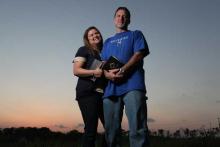
Bruce Bolin celebrated Easter Sunday this weekend among Southern Baptists, just as he did when he prayed at a tiny Kentucky church where his family filled half the pews.
After decades away from faith, "I slowly began to see what I was missing was the relationship with God that I could find in my church," said Boling, 45, who has settled in with a little Baptist congregation in Hendersonville, Tenn.
Lydia Scrafano's heart again thrilled to hear Catholic hymns sounding on a great pipe organ, just as she did as a child in Detroit.
"I missed it all. I missed taking Communion with a priest. I missed the stained glass. I missed the Virgin Mary," says Scrafano, 55, who has reconnected with her faith through a Catholic church in Williamsburg, Va.
Like many Christians and Jews, Boling and Scrafano drifted — or marched — away from the religion of their childhood. Then, unlike most, they came back.
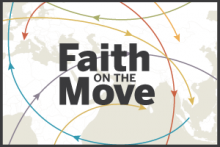
WASHINGTON--Ever since their mad dash out of Egypt bound for the Promised Land, Jews have been on the move -- and they continue to be, far more than any other religious group, according to a new study.
One in four of the world's Jews has migrated from one country to another, compared to 5 percent of Christians and 4 percent of Muslims who have left their native lands.
The findings are part of a comprehensive new study on religion and global migration, released Thursday (March 8) by the Pew Forum on Religion & Public Life, which tracked the journeys of the world's 214 million migrants.
"The world Jewish community is consolidating," said Jonathan Sarna, a professor of American Jewish history at Brandeis University who did not work on the study. "Jews are abandoning Third World countries where historically they had been persecuted and moving to large and generally free First World countries."
No other major religious group approached the 25 percent migration rate of the Jews, said Phillip Connor, the senior researcher on the study. On average, he said, only 3 percent of the world's population migrates.
I understand the sentiments shared by many voters in the recent Pew poll on faith and politics. The Chicago Tribune reports:
Social conservatives are growing more wary of church involvement in politics, joining moderates and liberals in their unease about blurring the [...]